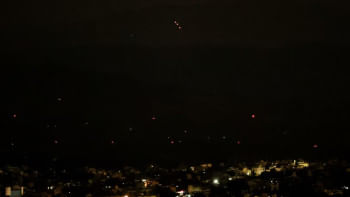Press free, but govt sometimes fails to respect media rights
The United States has said the media in Bangladesh is independent and can express a wide variety of views but sometimes experience negative pressure for criticising the government.
“The constitution provides for freedom of speech and press, but the government sometimes failed to respect these rights. There were some limitations on freedom of speech,” the US observed.
The US also said the government indirectly sought to censor the media through threats and harassment.
It further claimed some journalists in Bangladesh self-censored their criticism of the government due to fear of harassment and reprisal though the government claims media enjoys full freedom.
The US government made the observations in its “Country Reports on Human Rights Practices for 2014” of Bureau of Democracy, Human Rights and Labor of Department of State released on June 25 at the US Department of State in Washington DC.
US Secretary of State John Kerry presented the annual country reports, commonly known as the Human Rights Reports, covering the status of human rights in countries around the world.
It said the Bangladesh government indirectly sought to censor the media through threats and harassment. According to journalists, on multiple occasions government officials asked private television channels not to broadcast the opposition's activities and statements.
“The well-regarded newspapers Prothom Alo and The Daily Star were denied access to prime ministerial events because they published reports critical of the government and Prime Minister [Sheikh Hasina],” it said.
Quoting some journalists and NGOs, the US report says journalists are engaged in self-censorship, particularly due to fear of security force's retribution. “Although public criticism of the government was common and vocal, some media figures expressed fear of harassment by the government.”
Turning to the state-owned media, it adds the government owns a radio station and a television channel and the law mandates the Bangladesh Television (BTV) remain the country's sole terrestrial [non-satellite] broadcast channel.
The BTV broadcasts parliamentary sessions and government programmes but barely broadcasts the opposition activities.
An estimated 60 percent of the population do not have access to private satellite channels, and surveys indicate almost 80 percent of citizens receive their information from television, the report claims.
“The government required all private stations to broadcast, without charge, selected government news programmes and speeches by the prime minister,” it says.
The Awami League government, like its BNP predecessor, issued new broadcast licences to political supporters and denied them to political opponents, the report mentions.
Individuals and groups generally get engaged in the expression of views via the internet, although some activists state that fear of prosecution under the ITCA has limited their online activism.
The Bangladesh Telecomm-unications Regulatory Commission (BTRC) filtered internet contents the government deems harmful to national unity and religious beliefs.
The 2013 amendment to the ICTA increases penalties for cybercrime, makes more offenses ineligible for bail, and gives law-enforcement agencies broader authority to arrest violators without a court order.

 For all latest news, follow The Daily Star's Google News channel.
For all latest news, follow The Daily Star's Google News channel. 



Comments